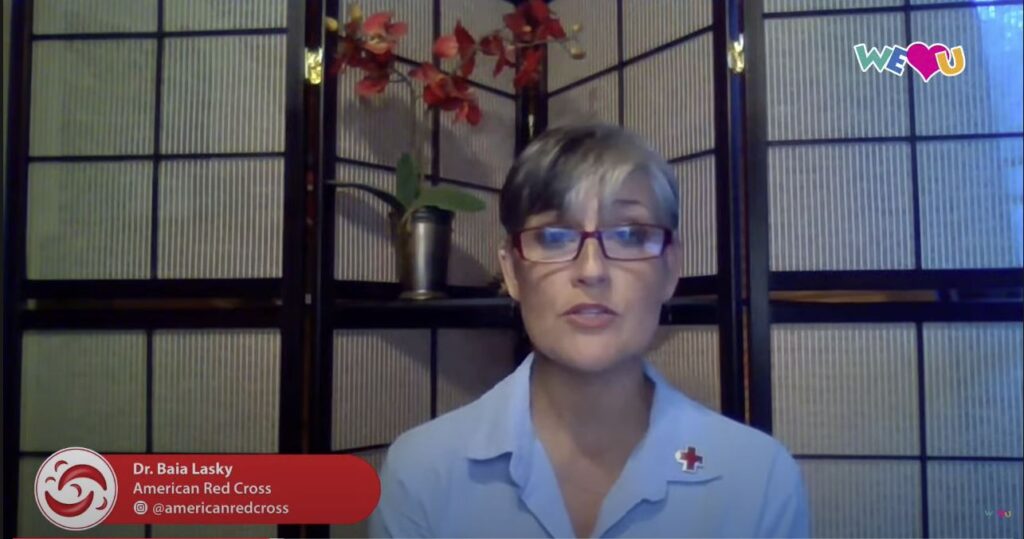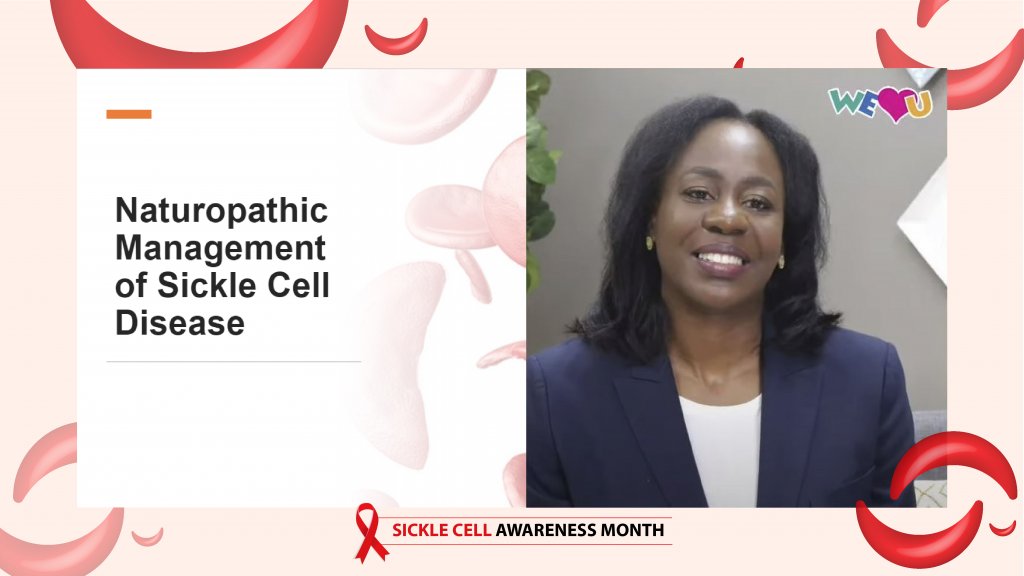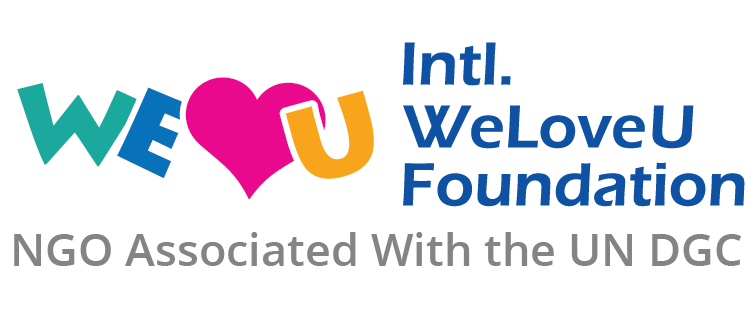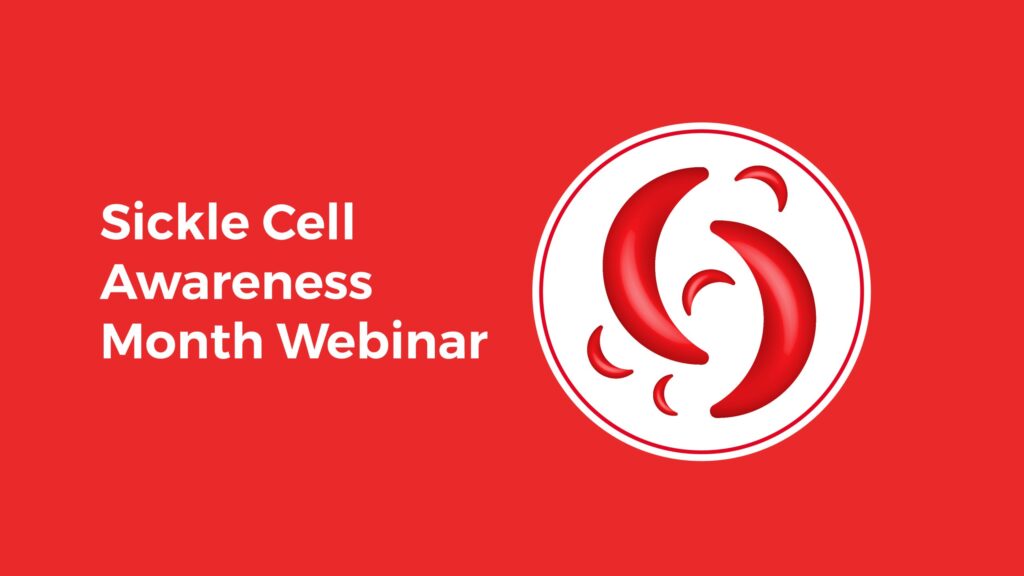On September 22, 2021, the International WeLoveU Foundation hosted a webinar recognizing Sickle Cell Awareness Month. The webinar featured: Dr. Nina Anderson of TOVA Community Health, Dr. Baia Lasky from the American Red Cross, and Dr. Monique Bowman of Harmony Health and Wellness Center. Viewers learned about sickle cell disease, the importance of blood donation, and naturopathic treatment.
About Sickle Cell Disease
There are about 100,000 individuals with sickle cell disease in the United States. It’s a hereditary condition caused by a genetic mutation, causing the red blood cells to curve, hence sickle cell. In turn, patients experience difficulties with circulation and the distribution of nutrients within their bodies. People with sickle cell disease may experience severe pain, respiratory distress, organ failure, and a shortened life span. While there is no cure, there are ways to manage and improve the quality of life.

The Importance of Blood Donation
To prevent complications, some patients with sickle cell disease may require blood transfusions. The first panelist of the evening spoke about the key position blood donors hold in making sure there is enough blood for patients who need transfusions.
Dr. Lasky introduced two types of transfusions, simple and exchange transfusion. A simple transfusion is when a patient receives blood. On the other hand, an exchange transfusion is when abnormal red blood cells are removed and replaced with normal red blood cells. Exchange transfusion decreases the concentration of unhealthy cells in the body and reduces health complications. Patients may require as many as 8-10 units of blood as often as once per month.

While explaining transfusions, Dr. Lasky said a blood recipient’s body might develop antibodies to donor blood because the cells are foreign to theirs. Therefore, collecting different donor types is paramount to matching donors and recipients.
Dr. Lasky described the shortage in blood during the COVID-19 pandemic. “The places where we collect blood, like schools, businesses, sporting events, faith-based organizations — these are all places that were shut down.” Before the pandemic, the blood center in Georgia near Dr. Lasky had about 5,600 African American weekly donors and the number reduced to 1,000 donors during the pandemic. The shortage is detrimental for patients with sickle cell disease who need frequent transfusions from specific donors.
Previously, Dr. Lasky shared a story about one sickle cell patient who can only receive blood from eight people in the U.S. because of the blood match, and they will be supporting her for the rest of her life with their blood donations.
Naturopathic Management of Sickle Cell Disease
The second panelist, Dr. Bowman, presented naturopathic care to improve the quality of life for those living with sickle cell disease. “Naturopathic medicine prioritizes the most natural, least invasive and least toxic therapies to address disease and promote health and wellness by considering the body as a whole.”

For example, she repeatedly emphasized that nutrition and diet is the most impactful thing to consider for overall health. A nutrient-dense diet can help improve blood flow and red blood cells quality, which helps manage sickle cell disease. Adopting an anti-inflammatory diet rich in omega-3s and other healthy fats to support a more flexible cell membrane allows the red blood cells to travel freely through the organ’s tiny blood vessels and the hands and feet. On the other hand, an inflammatory diet causes the red blood cells cell membrane to stiffen, increasing the likelihood of blocking tiny blood vessels, which causes a pain crisis.
Additionally, she explained how lifestyle, stress management, sleep quality, and physical activity are equally important to overall well-being.
The Call to Action: Donate Blood
Participants who tuned in to the Sickle Cell Awareness Webinar learned a great deal about sickle cell disease. One of the most significant takeaways is how they can also support the sickle cell community regardless of where they live through donating blood. On September 26, 2021, the Intl. WeLoveU Foundation is hosting one of the biggest blood drives in Atlanta, GA, in partnership with the American Red Cross. Notably, Georgia has one of the largest populations of individuals with sickle cell disease. To learn more about how to support, visit the National Blood Drive page.


0 thoughts on “Sickle Cell Awareness Webinar Panelists Inform & Inspire Audience To Take Action”
Each speaker was well-versed in the topic and I learned a lot in a short amount of time. Loved this webinar. Thanks for putting it together.
This webinar was eye-opening! I hadn’t realized how important blood transfusions are for those suffering from sickle-cell. I am happy to see WLU promoting awareness and also holding blood drives to help those in desperate need of blood during the shortage.
This is really helpful for those who might be a little hesitant or nervous about donating blood. This webinar gave more insight as to why it is so important to go out and donate! There are people who are counting on us in order for their quality of life to be better. I hope nothing but the best for the blood drive this weekend in Atlanta!
Thank you for a great webinar. I’m thankful for all the panelist who shared their expertise on sickle cell. I’m learning how important blood donations are the more I volunteer with the WeLoveU Foundation. I’m thankful for webinars like this that broaden my mind to be aware of things that I wasn’t aware of before. I am so happy that I can participate in saving and improving lives of others through small efforts! Looking forward to future webinars and donating blood!
I really learned a lot from viewing this webinar the last time I tuned in I also learned alot, I think it is a great thing to raise awareness for this condition. Many people, myself included did not know how many people are constantly dealing with issues caused by sickle cells, hats of to WeLoveU Foundation, Dr Nina Anderson, Dr. Lasky and all who put this together. I look forward to the hopeful future where this disease will not take such a toll.